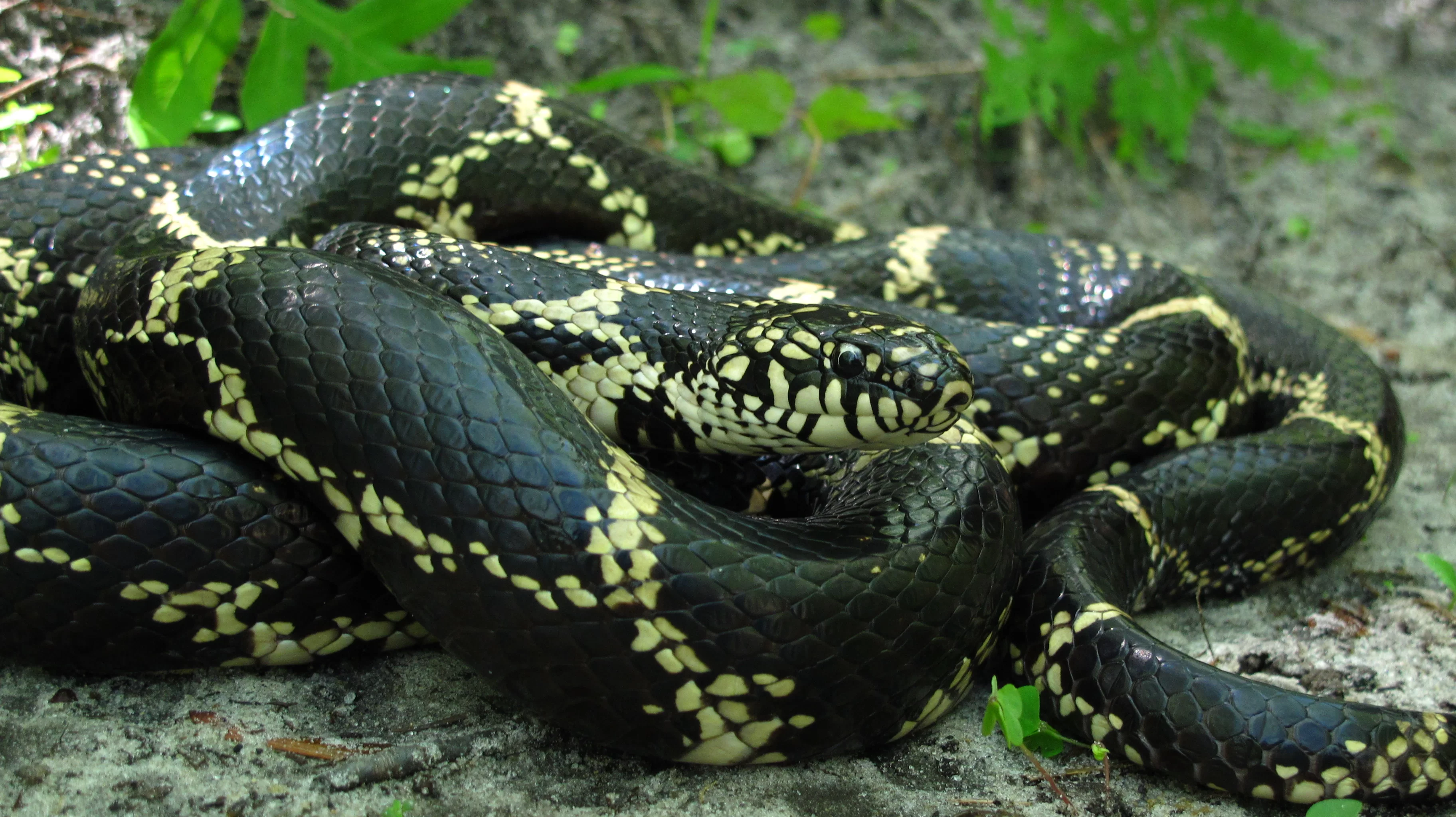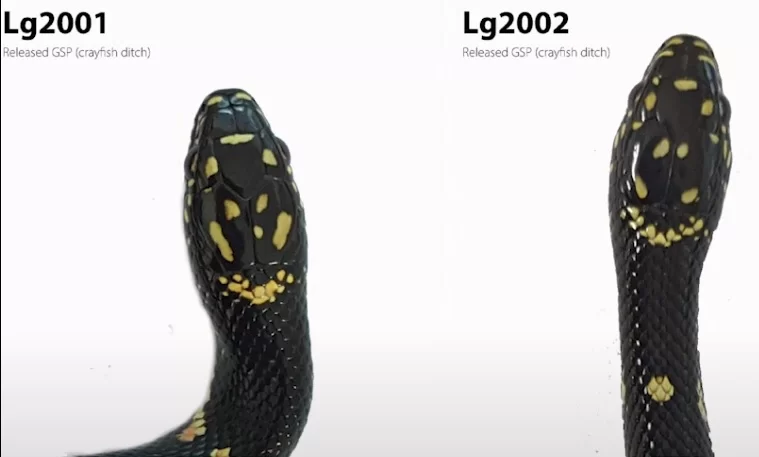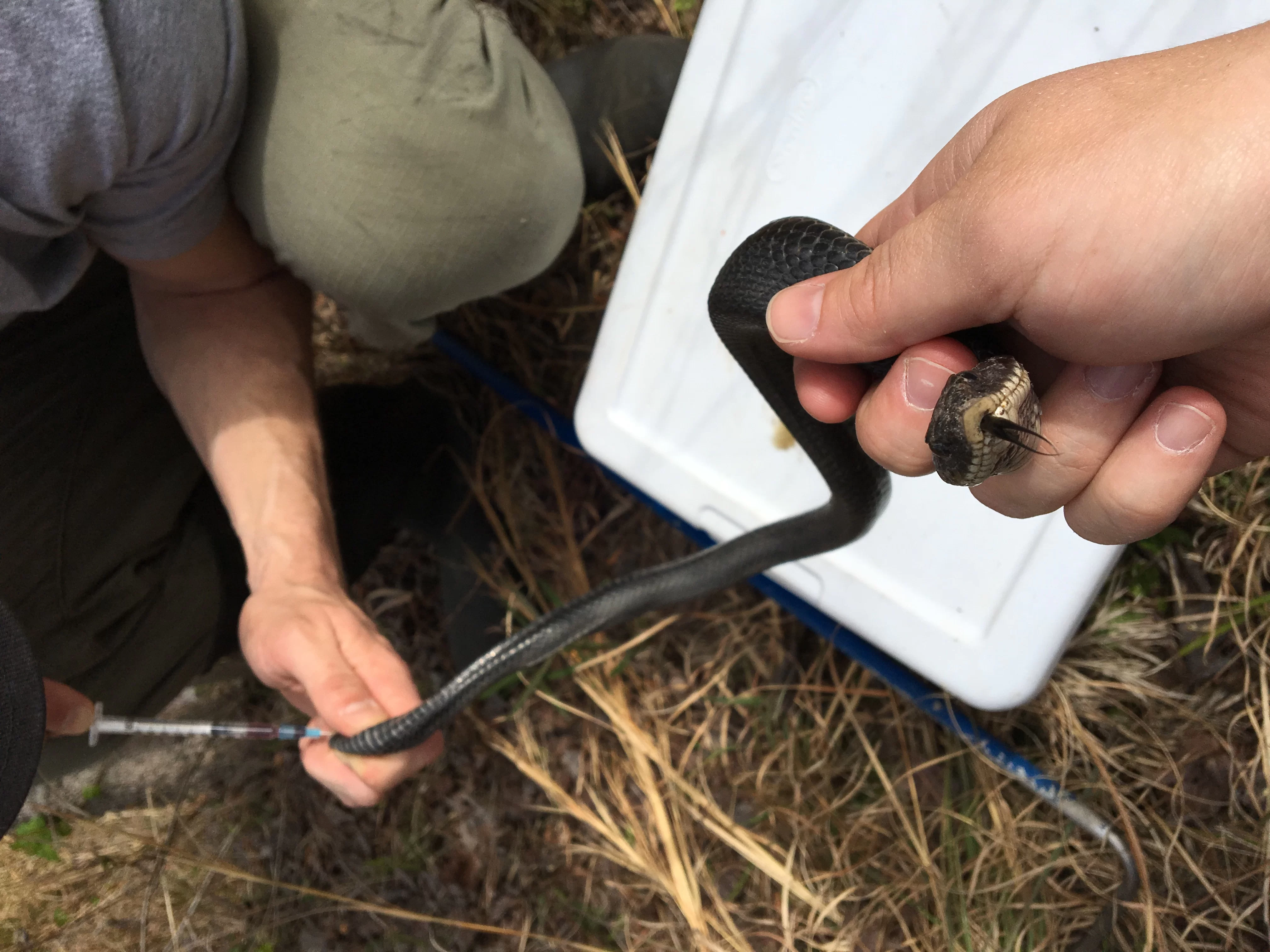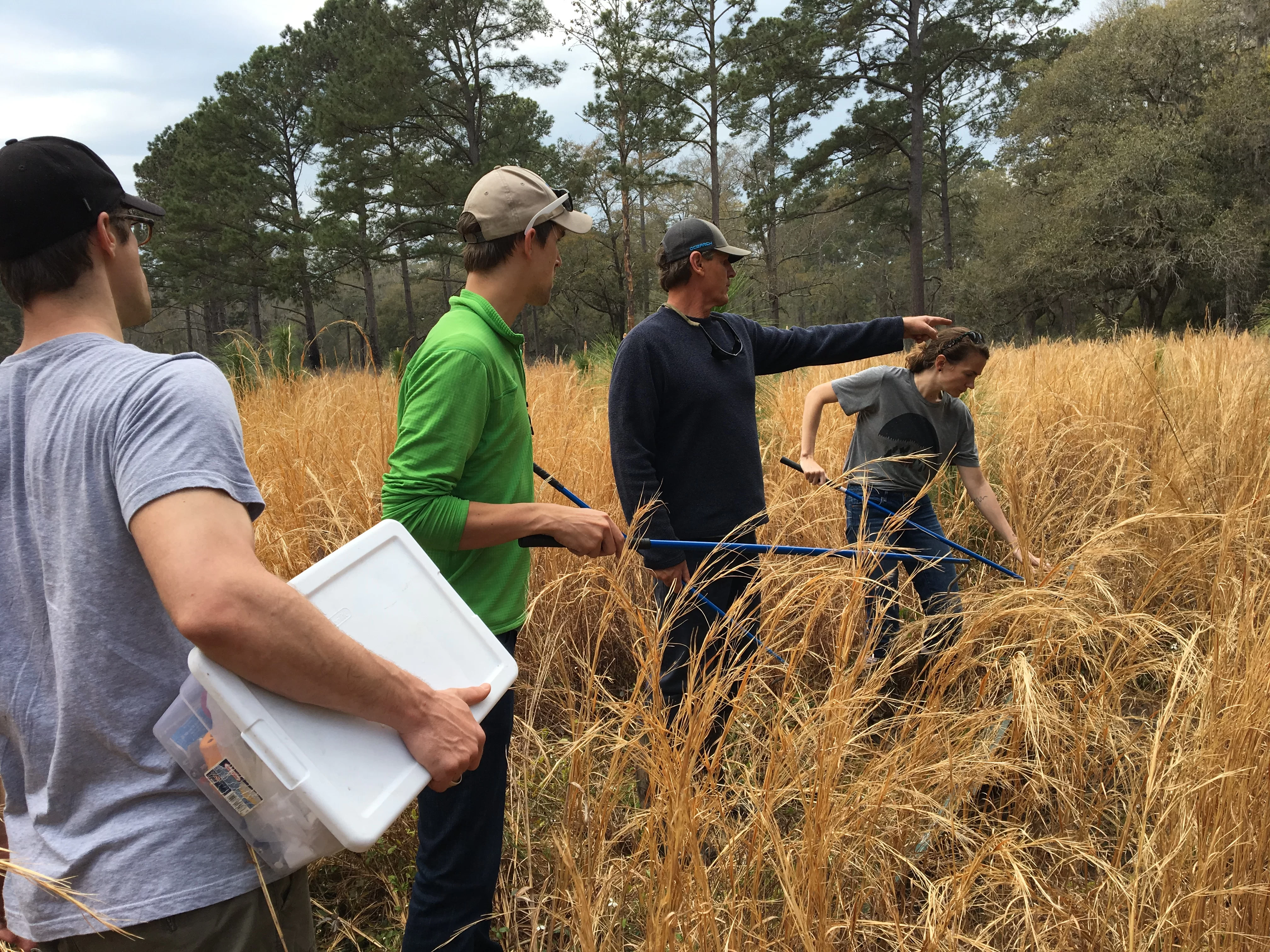Research and Conservation
Snakes
Recent studies suggest that eastern kingsnake populations have declined over much of their range over the last two decades. A mark-recapture study is underway to see if a head-start program can supplement populations.
Recent studies suggest that eastern kingsnake (Lampropeltis getula) populations have declined over much of their range over the last two decades. Explanations for this phenomenon include changes in the landscape resulting in subsequent habitat loss and disease processes such as fungal infections and internal parasites.
Spring Island appears to have good populations of kingsnakes compared to other regions in the southeast but the first step is to document this. Our study includes capturing and marking any specimens found on the island. Other pertinent information like snout vent length, mass, sex and body condition is recorded in the field and all animals are released at point of capture.
A small collection of adults from Beaufort County, SC has been bred in captivity. The baby eastern kingsnakes were marked and the first cohort was released into Chechessee Nature Preserve in 2013. Several dozen young kingsnakes have been marked and released over the years using a variety of methods - including clipping belly scales, PIT tagging, and photographing head patterns.
Although we have collected presumed recaptures, the original marking method of scale clipping was not as diagnostic as needed and PIT tagging requires that the snakes remain in captivity for a significant amount of time to reach a large enough size. Through this process, we have discovered that the least-invasive and most accurate method is photographing head patterns, which do not typically change as the snake ages.
In snake research, there is very little documentation that captive-hatched babies released in the wild actually survive. Since we know mortality is very high on young snakes, any recapture of a cohort at any time especially as an adult would be very important. Snakes, including kingsnakes, are secretive by nature so recapture will be aided by monitoring coverboard arrays that already exist in the nature preserves.
During field work for the study, data was also collected for all species of snakes. Researchers looked at blood pathogens and parasites found in/on the snakes and found that dehydration enhances snake immunity. This work was published in the Journal of Experimental Zoology (link to publication below).

Copyright © 2025 Spring Island Trust
40 Mobley Oaks Ln. · Okatie, SC 29909 · 843-987-7008
Site by Sans Sheriff Studio




